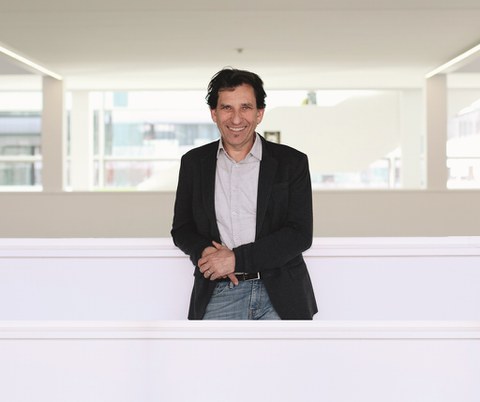Sep 14, 2019
Happy Birthday, Alexander von Humboldt!

Prof. Dr. Michael H. Sieweke
What if Humboldt was a researcher today, in 2019? He was a marketing genius. A networker who never stopped writing letters. He loved succinct sentences and punchlines. He held lectures for a wide audience. He took a stand on slavery, colonialism and environmental destruction.
Today, he would probably tweet – against climate change sceptics and fake news mongers. He would appear on talk shows and have his own YouTube channel. Which area would this polymath choose to specialise in today, where would his adventures lead him? Perhaps he would study the melting permafrost in Siberia… Would he attend international conferences anywhere in the world or rather refuse flights? Or would he even be on the first manned flight to Mars? By the end of his life, Humboldt had spent his family’s fortune on travel and publications. Where would he get the money from to pursue his dreams today? Would he hold a chair in Berlin or have turned his back on Germany as he did then?
Alexander von Humboldt is known as an explorer who was ahead of his time in many ways – as an international networker, as a pioneer of climate research, as a communicator of scientific knowledge, and much more besides.
How modern and how relevant is Alexander von Humboldt today, 250 years after his birth? Find personal answers to the question here: https://humboldt-heute.de/en/statements
As winner of a Humboldt Professorship, Prof. Michael Sieweke of the CRTD also commented on the topic "Humboldt means to me today...": https://www.youtube.com/watch?v=Q4OeS5eY_x8
"Alexander von Humboldt has combined his love of nature with a strong thirst for knowledge, regardless of whether he has bent over to a small moss or climbed the highest mountain. The will to understand things, the joy to see a connection, as Alexander von Humboldt has often described it, can still be experienced by a scientist today”, states Prof. Michael Sieweke. “At the CRTD in Dresden we are investigating one of the great wonders of biology: regeneration. We are looking at the interplay of cells and, with that, we are with Humboldt, who has always addressed the interconnections in nature. Alexander von Humboldt is also a very personal role model for me. He was a true cosmopolitan and at home in France and Germany alike, he published many works in French, lived in France for many years and maintained a close network with French colleagues. Even in times of political tension or even war, he managed to maintain this scientific collaboration. Today, this is an incentive to promote cooperation with France under far more favourable conditions."
Have a look at the research of the Sieweke group at CRTD and also see an interesting online article about our only Dresden Humboldt Professor.
